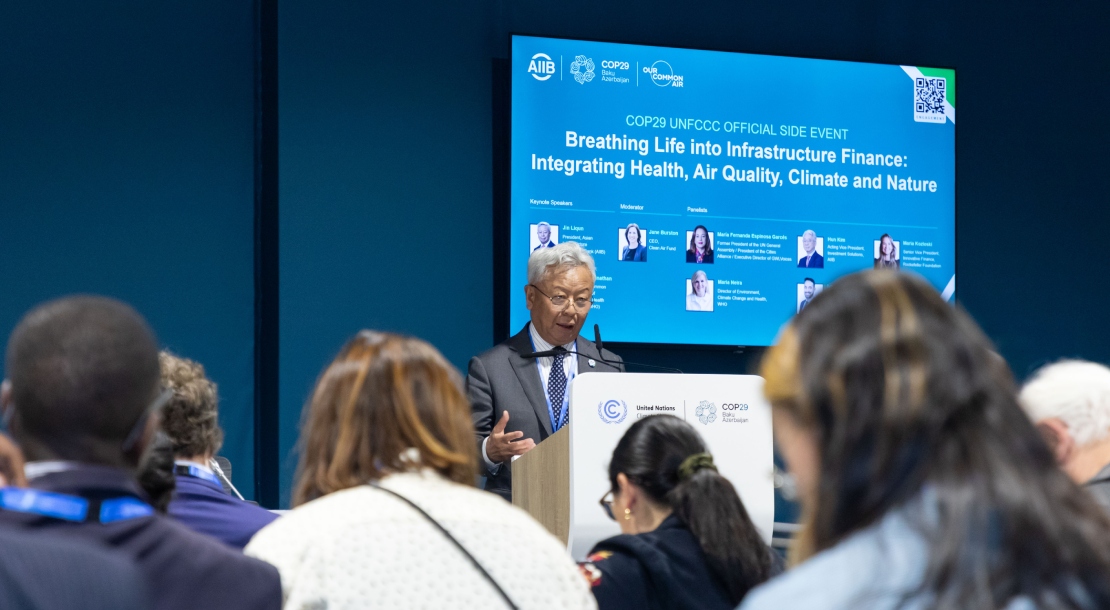The 29th Conference of Parties to the UN Framework Convention on Climate Change (COP29) recently concluded in Baku, Azerbaijan. As the world continues to grapple with extreme weather and natural disasters, this year’s meeting, the “Finance COP,” was an opportunity for world leaders to update the global finance targets set 15 years earlier. While COP29 concluded with notable achievements, much more remains to be done to effectively address climate change. The international community continues to work together to accelerate progress even as they build toward COP30 in Brazil.
AIIB co-hosted a UNFCCC side panel to enhance awareness of the links between health, climate and nature within infrastructure finance, and also facilitated four pivotal sessions at the Joint MDB Pavilion where speakers discussed essential topics including infrastructure for planetary health, innovative climate financing partnerships, the value of independent evaluation insights, and the need for large-scale investment in adaptation.
Here are the key AIIB outcomes from COP29, all of which align with our Climate Action Plan:
MDB Climate Investment Targets
AIIB joined other MDBs in a statement outlining additional financial support and other measures to help countries achieve their climate goals. This included a projection to collectively provide USD120 billion annually in climate financing for low- and middle-income countries by 2030 – with USD42 billion specifically allocated for adaptation efforts – and mobilize USD65 billion from the private sector.
A Partnership for Asia
AIIB and the Asian Development Bank (ADB) renewed their partnership to address regional development challenges, focusing on climate finance, sustainable infrastructure and poverty reduction through enhanced collaboration and co-financing efforts.
Expanding Green Infrastructure in Azerbaijan
AIIB signed a financing agreement of USD160 million for its first private-sector renewable energy projects in Azerbaijan, marking a crucial milestone for the development of green infrastructure across the Caucasus region. AIIB have partnered with Abu Dhabi Future Energy Company PJSC (Masdar) on the project, with ADB and the European Bank for Reconstruction and Development as co-financiers.
Strengthening Climate Resilience Across Asia and Africa
AIIB and the Global Center on Adaptation (GCA) announced a strategic partnership to integrate climate risk assessments and resilience-building strategies into infrastructure projects across Asia and Africa, aiming to enhance climate-proof infrastructure and protect vulnerable communities.


